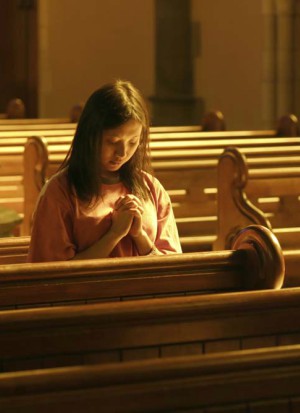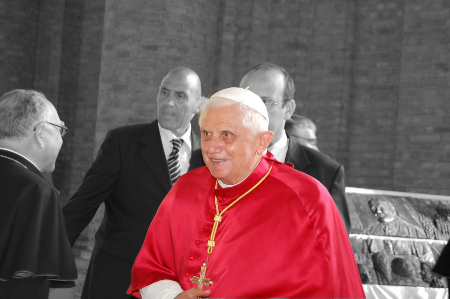 Hi readers, it seems you use Catholic Online a lot; that's great! It's a little awkward to ask, but we need your help. If you have already donated, we sincerely thank you. We're not salespeople, but we depend on donations averaging $14.76 and fewer than 1% of readers give. If you donate just $5.00, the price of your coffee, Catholic Online School could keep thriving. Thank you. Help Now >
Hi readers, it seems you use Catholic Online a lot; that's great! It's a little awkward to ask, but we need your help. If you have already donated, we sincerely thank you. We're not salespeople, but we depend on donations averaging $14.76 and fewer than 1% of readers give. If you donate just $5.00, the price of your coffee, Catholic Online School could keep thriving. Thank you. Help Now >
Angels Are Always Welcome: Toward an Ethic of Virtue
FREE Catholic Classes
Yet, there is a difference between those virtues acquired naturally and those given by the grace of God. There is also a difference between reading stories and becoming part of a story by participating each day in the life of the Church. Aesthetic delight in the representations of the Seraphim, like the intellectual appreciation of medieval angelology, risks being just another avenue of New Age avoidance without personal commitment to the maker of spiritual creatures. Otherwise, we repeat the mistake of the medieval Muslims who thought happiness came directly from angels, not God. Early in their spiritual journey, Jacques and Raissa Maritain were told by their spiritual director "to make your life your work." The Book of Virtues offers millions of Americans the same good advice - to resist the angelic temptation of believing ideas and dreams suffice, when it is the work of your entire life which matters.
Highlights
Catholic Online (https://www.catholic.org)
2/20/2014 (1 decade ago)
Published in U.S.
Keywords: culture, forgiveness, healing, peace, Dr Martin Luther King Jr., Mercy, Love, culture of forgiveness, Virtue, Book of Virtues, William Bennett, Deal W. Hudson
WASHINGTON,DC (Catholic Online) - St. Paul may be scorned by some for his supposed misogyny, others may applaud at the head of St. John the Baptist served on a platter, but angels are always welcome. Angel, in kitsch versions or otherwise, may be found at the Catholic book store, the Hallmark store around the corner, and New Age spirituality shop further down the street.
Readers of fiction and movie goers might find the new atheism appealing, but when an angel enters the narrative their defenses go down. Angels, evidently, are non-threatening accoutrement of the Judeo-Christian tradition eliciting no reminders of the thorny issues keeping people at arm's distance from churches.
Does the respectability of angels suggest that even the most embittered, or the most skeptical, of non-religionists are vulnerable to a spiritual awakening? I think the opposite may be the case - angels represent our appetite for distraction, our propensity to look away, our self-deception. Angels viewed without awe or fear do nothing more than connect our sentiment to an abstraction. The angels filling the shelves of your local bookstores look less like terrible messengers from God than stuffed animals to hug and kiss.
When angels seem too cozy, we make mistakes about them and ourselves. "Angelism" is the old-fashioned word we use for the mistake of assuming men possess the power of angels. There was a time when the great Catholic philosophers like Maritain, Gilson, Pieper, and Yves Simon diagnosed the modern mind as suffering from angelism. Why? Angelists forget their bodies, pretending the senses are not needed as the starting point of knowing, and they end up losing their grip on human nature. The resulting damage is most apparent in modern ethics and politics. The liberal obsession with the power of the federal government to solve all human problems, no matter how personal, turns a blind eye to basic truths about human existence, such as the truth that growth in the virtues must begin at home.
Some years ago, Wiliam J. Bennett, a former professor of mine at the University of Texas, had surprising success with his The Book of Virtues (1996). Homes with only a scattering of books on the shelves are very likely to have Bennett's book, often on the coffee or side table, obviously unread but nonetheless emanating wisdom. Bennett, of course, is not responsible for his book going unread and was congratulated, rightly, for attempting to reconnect our moral imagination to the world of human action, to the body, and to the centrality of character formation.
Angelists treat morality as a list of propositions that obligate us to perform certain actions and avoid others. But in tapping the ancient notion of "virtue," Bennett addressed the all-important issue of how a human person, often weak and confused, is able to act in accord with his lists of right and wrong. Flip through the pages of Bennett's book, and you see he takes us back to the Great Books and those stories and tales that have been passed along for centuries; the tales of Aesop, the Brothers Grimm, Bullfinch's Mythology, the speeches of Lincoln and Jefferson, the essays of Emerson, the poems of Kipling and Tennyson. In other words, we don't necessarily learn about the virtues by reading a book on virtue, just good books in general, books that have proven their worth over time.
A virtue is a good moral habit - fortitude, or courage - is the deeply embedded inclination to do good in the face of danger. A courageous person does not strike a Hamlet-like pose to consider his existence when making a decision. Since he is inclined, he acts, and he acts bravely. An ethics of virtue, thus, takes the body seriously, treating the whole person as a unity of mind and body. It doesn't commit the angelistic error of assuming that moral goodness consists merely in right opinions. Unlike the failed pedagogies of "situation ethics" and "values clarification," training in the virtues provides moral flexibility and tolerance without promoting skepticism and without sacrificing adherence to laws and precepts.
An ethics of virtue does not hide behind the pretense that knowing what to do is the moral problem - it focuses on our capacity to do what we see is right in the face of obstacles, both internal and external. Our need for virtue, as the philosopher Yves R. Simon terms it, is identical with our need for human dependability. In fact, human dependability is what we acquire through the virtues.
Virtues represent the takeover of the body, emotions, and appetites by moral principles. That is why, as Aristotle says, a virtuous man takes pleasure in his virtue. That is why there are no grounds for admiring the person who strikes Hamlet's pose in the face of temptation. A virtuous person acts easily and without regret.
That virtue cannot be taught has been well known since Socrates: virtues are acquired dispositions to act, not values to be memorized. The question then is how we acquire one disposition rather than another. Surely Bennett was right to emphasize the role of stories - where the good and the beautiful are closely aligned. Human beings, and youth in particular, always seek to emulate what they find beautiful.
Catholics, especially, need to become better storytellers; they need to tell the stories of their saints. These stories tell us how to orient our whole lives to God and how to overcome the spiritual minimalism, the failure of charity heard in the question, "How little do I have to do?" Bennett's collection of stories can help us, in their own way, to reflect upon the habits of character that make us more dependable to others and to God, more adept in the face of the unforeseen, and more patient in the midst of moral disagreements.
Yet, there is a difference between those virtues acquired naturally and those given by the grace of God. There is also a difference between reading stories and becoming part of a story by participating each day in the life of the Church. Aesthetic delight in the representations of the Seraphim, like the intellectual appreciation of medieval angelology, risks being just another avenue of New Age avoidance without personal commitment to the maker of spiritual creatures. Otherwise, we repeat the mistake of the medieval Muslims who thought happiness came directly from angels, not God.
Early in their spiritual journey, Jacques and Raissa Maritain were told by their spiritual director "to make your life your work." The Book of Virtues offers millions of Americans the same good advice - to resist the angelic temptation of believing ideas and dreams suffice, when it is the work of your entire life which matters.
© Deal W. Hudson, Ph.D
-----
Deal W. Hudson is president of the Morley Institute of Church and Culture, Senior Editor and Movie Critic at Catholic Online, and former publisher and editor of Crisis Magazine.This column and subsequent contributions are an excerpt from a forthcoming book. Dr. Hudson's new radio show, Church and Culture, will begin broadcasting in February on the Ave Maria Radio Network.
---
'Help Give every Student and Teacher FREE resources for a world-class Moral Catholic Education'
Copyright 2021 - Distributed by Catholic Online











 Daily Readings for Thursday, April 18, 2024
Daily Readings for Thursday, April 18, 2024 St. Apollonius the Apologist: Saint of the Day for Thursday, April 18, 2024
St. Apollonius the Apologist: Saint of the Day for Thursday, April 18, 2024 Aspiration: Prayer of the Day for Thursday, April 18, 2024
Aspiration: Prayer of the Day for Thursday, April 18, 2024

